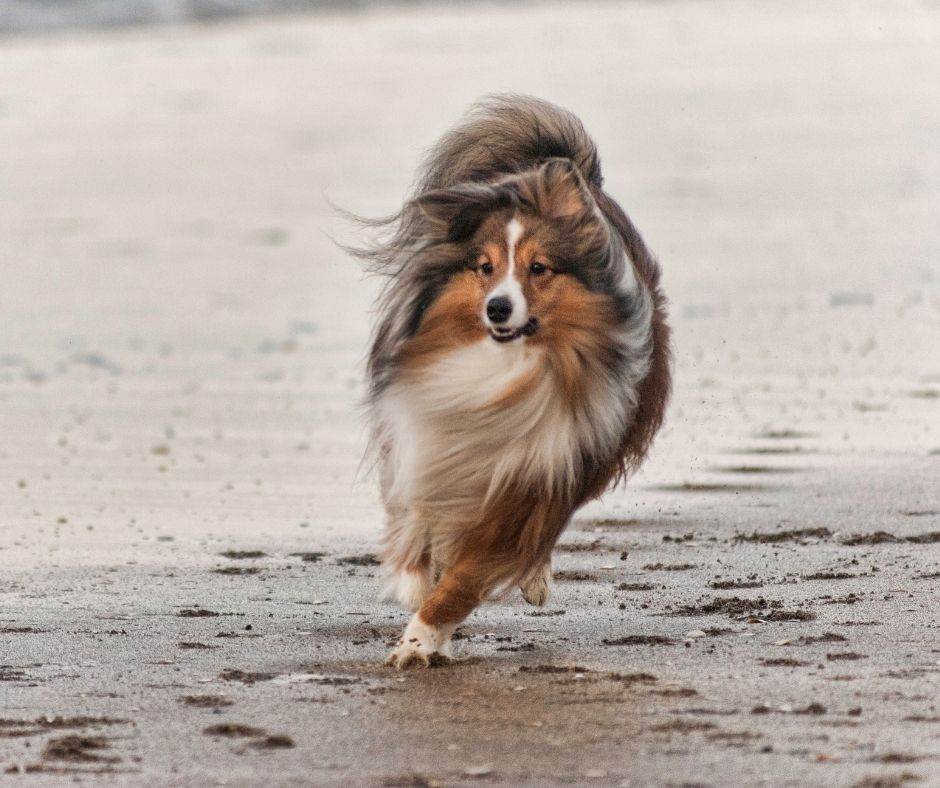What Affects How Your Dog Smells?
As we have been living with BARF-fed dogs for years, every time we pet a dog we are surprised by the smell that remains on our hands.

As we have been living with dogs fed BARF for years, every time we pet the dog we are surprised by the smell that remains on our hands. The specific smell that some dogs have is not something to get used to. The most common cause of this specific smell is the overgrowth of fungi (from the genus Malessezia spp) on the skin. In addition to the specific smell, the symptoms of excessive fungal growth on the skin are:
- scratching,
- red-brown discoloration and hair loss,
- redness of the skin
- ear infections
Malessezia is part of the physiological microflora on the surface of the skin, but it will reproduce excessively when skin health is impaired. The immune system of healthy skin limits the excessive reproduction of Malessezia, but when the skin's natural protection 'fails' Malessezia enters the deeper layers of the skin and causes its chronic inflammation. So, Malessezia appears as a secondary cause of skin-related problems, the primary cause most often 'lying' deeper in the body.
Possible primary causes:
- Food (food rich in carbohydrates)
- Lack of essential nutrients (lack of omega 3 fatty acids, zinc, vitamin A, etc.)
- Endocrine diseases (hypothyroidism, Chusing's disease)
- Weakened immune system (impaired gut health, corticosteroid and antibiotic therapy)
- Environmental toxins (food toxins, pesticides and other chemicals)
- Skin weakened due to impaired circulation and innervation (back injuries, cervical spine injuries caused by collar and improper leash management, etc.)
- Stress
- Frequent bathing
- Use of anti-fungal shampoos
Carbohydrate-rich foods encourage the reproduction of fungi on the skin because fungi feed on carbohydrates. Dehydrated food contains over 35% carbohydrates, and that's just about any dehydrated food. Dog owners are often under the misconception that if the food is grain free, it also means that there are no carbohydrates. There are no grains in grain-free food, but there are other ingredients rich in carbohydrates - potatoes, peas, etc.
Unpleasant dog odor is not a normal phenomenon
Specific, unpleasant odor dog odor is so common that dog owners think it's normal, that it's a normal dog smell, but it's a condition that needs to be treated. Here we come to another type of misconception, which is the way in which chronic inflammation of the skin caused by Malessezia is treated. It is counterproductive to use local (shampoos and creams) as well as systemic antifungal therapy. Local therapy will destroy not only Malessezia but also the good microflora on the skin, further deepening the problem. Systemic therapy has numerous side effects, negatively affecting the metabolism and microbiome of the entire organism. And the worst thing is that both types of therapy do not treat the primary cause.
Why are Barf-fed dogs especially pleasant to pet?
The simplest solution for long-term elimination of unpleasant odors in dogs is the BARF diet - raw meat, offal, bone and cartilage, without excess carbohydrates that make the skin an ideal habitat for fungi. In addition to not containing unnecessary ingredients for dogs, BARF nutrition also strengthens the immune system.


